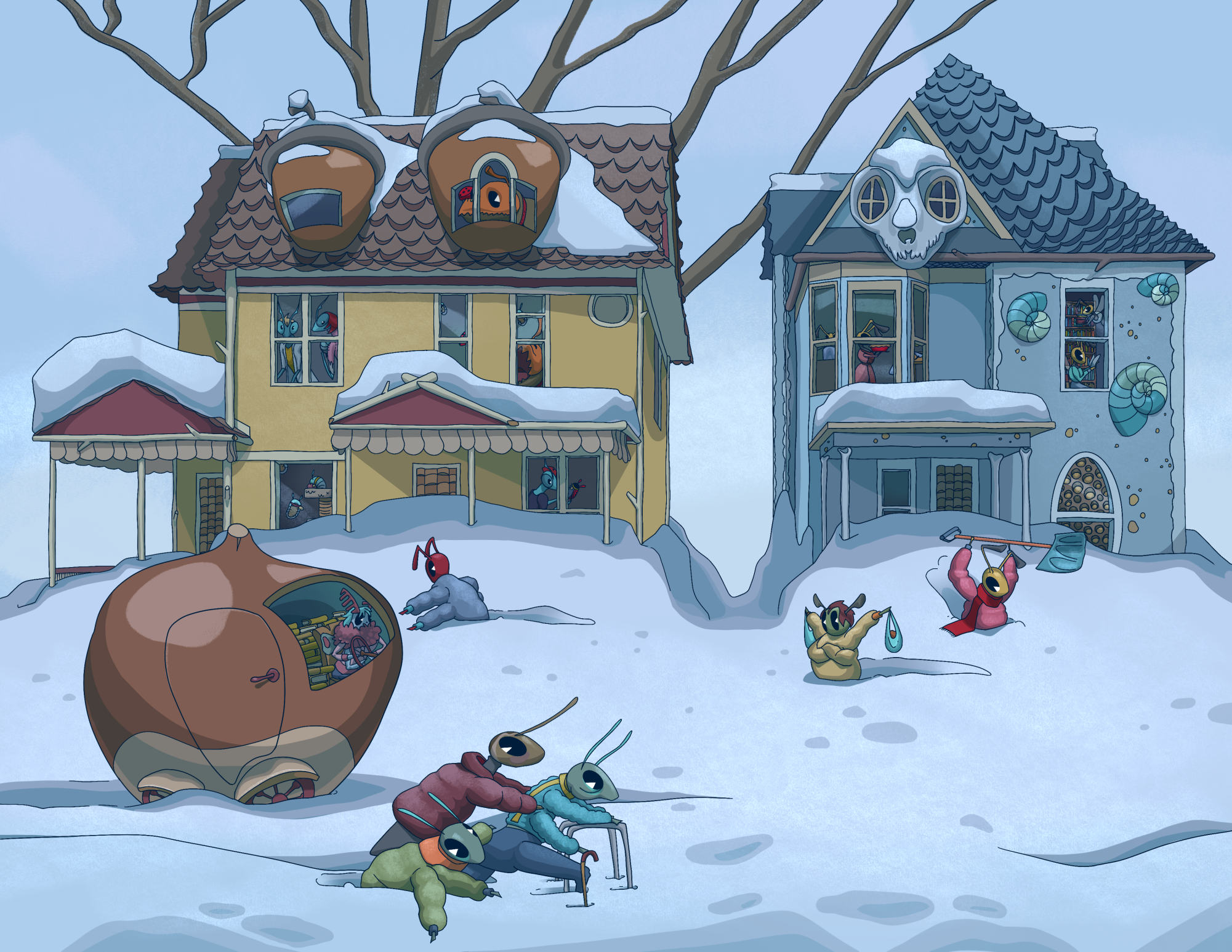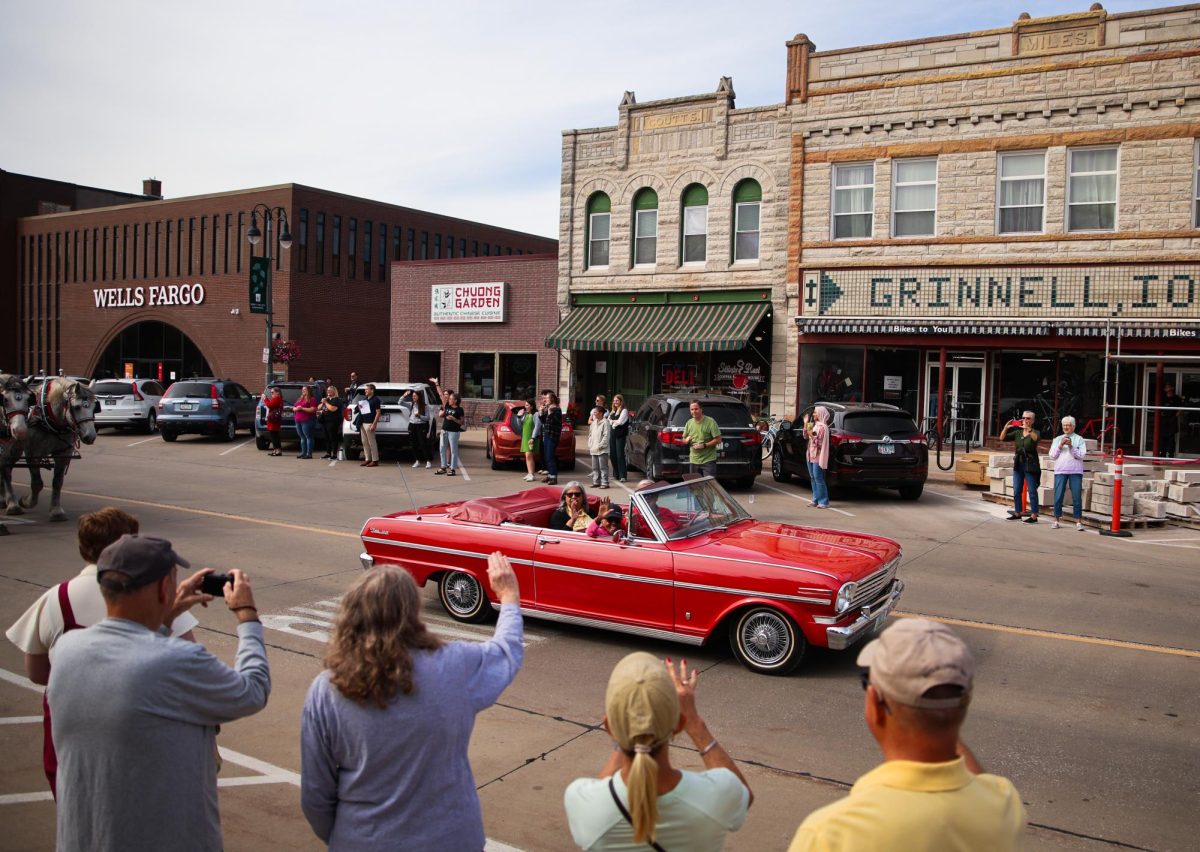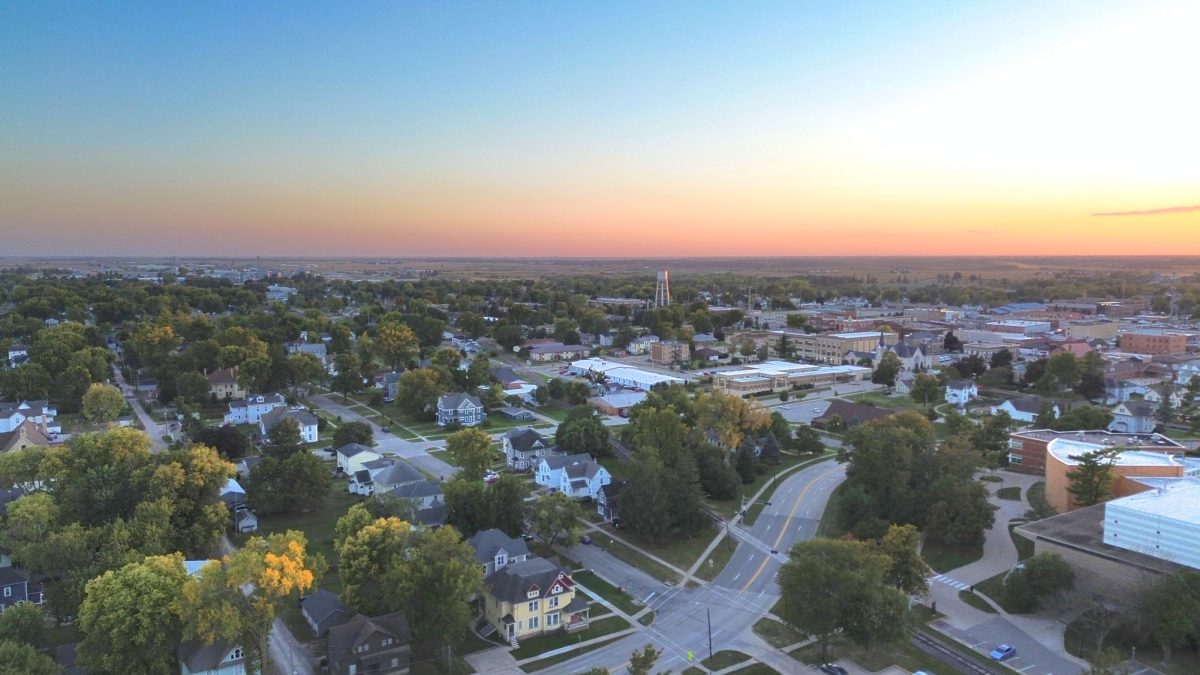The deep freeze that swept through the United States in December and January did not spare small-town Grinnell. With two back-to-back snowstorms in the week of Sunday, Jan. 7, Grinnell residents faced temperatures below minus 30 degrees Fahrenheit and snow 20 inches deep — conditions that greatly affected city operations.
“Everything in town shut down,” said Monique Shore, technical administrator at the Drake Public Library.
According to Carl Eggermont, public service director, such extreme weather conditions have not been seen since the 1990s. Data from the National Oceanic and Atmospheric Administration reveal that 2019 was the last time temperatures went beyond minus 30 degrees Fahrenheit in January, during an extreme wind chill event. Reports from the Iowa Department of Agriculture and Land Stewardship indicate that average snowfall in the past 5 years never exceeded 14 inches in January.
“What hurt us was that it was at opposite ends of the spectrum,” Eggermont said. The first snowstorm on January 9 saw wet, heavy snow that was difficult to plow, while the second storm spanning across January 11 and 12 brought dry, powdery snow that, combined with winds of up to 50 miles per hour, “compounded” the snow’s depths. Eggermont issued a Snow Emergency, banning vehicles from roads so plows and emergency teams could mobilize.
Shore was expecting a shipment of her new children’s biography of Edith Renfrow Smith on Wednesday, Jan. 10, titled, “No One Is Better Than You.” Due to frozen interstates and trucking machinery, the shipment was delayed twice. When she and her husband drove to Des Moines to collect the books themselves, her Mazda started leaking from ice buildup, so they had to leave it behind halfway.
Gary Mertens, shuttle driver for the College and private driving instructor, said that “dangerous” conditions had forced him to cancel lessons in Marshalltown. However, he added that he had also received several requests to teach winter driving.
“Northerners, we just go out and drive,” he said, emphasizing that driving on ice in bad weather was an “important lesson.” He never canceled his College shuttles but added that he would not drive if it were truly dangerous.
“I’m often surprised how little understanding people from other places have for this kind of weather,” he said.
“There were several students, always good about coming down,” said Sam Cox, owner of Saints Rest Coffee House. “I remember on Friday, telling each and every one of them, ‘I do not want to see you tomorrow,’” she said. “I gave people rides home because it was just too cold.”
Cox said she lost $4000 to $5000 in sales that week, having to use savings originally meant for machine repairs to pay staff and bills. She said January had always been “tough” without College students, faculty and staff, and the storm only exacerbated difficulties.
“I knew of restaurants that lost $10,000 to $12,000,” Cox said.
Like Mertens, Cox never ceased her business operations, living life as normal as possible despite the trying weather.
“I would rather be here … versus sitting in my house and watching TV all day,” she said. She ran the shop alone through the week with “super strong” regulars still showing up at exactly 6:30 a.m.
“You just have to get up and go, you have to fake it,” Mertens said. “With a lot of dark, gray weather … once you’re sad or depressed, it’s hard to get off.”
However, he also acknowledged the weather would inevitably affect some more than others. For instance, it had been too dangerous to bring his wife, a wheelchair user, outside, leaving them “stuck in the house.”
Shore recounted that her friend had also been snowed into their home — except that the heating system had also broken. However, she said the community banded together.
“They were at her house trying to help out even though it was late at night,” Shore said. “The neighbors were there with their tractors.”
Eggermont explained that plows had been sent out in the first storm for approximately 11 to 13 hours, with hopes the snow would “die down.” However, Eggermont said the snow only got worse.
“We were running 24 hours non-stop,” he said of the city’s second round of plowing. “I utilized water and wastewater operators as well.”
Eggermont described the process as defeating, with crews completing their rounds only for the roads to be blanketed with snow again. “Crews would … get back to where they started out, and they couldn’t tell they’d been there,” he said. Salt for the roads lost all of its thawing properties in the extreme temperatures, Eggermont said.
However, he added, “We have to keep going.” Explaining that the storms were a good learning experience, he described how they found out that sending out rotating crews of plow trucks was more efficient than waiting for a build-up of snow, just to plow non-stop for hours.
Community members stressed that bad, cold weather is common in a place like Grinnell — what was important in the face of these deadly, freezing temperatures was being prepared.
“We would not have done [the drive] if we thought that it was dangerous,” said Shore of her trip to Des Moines, describing the extra precautions she took like leaving with two cars — which ultimately ended up saving her.
“Take cold weather very serious, because it can kill you,” said Mertens. “Put [the coat] in the backseat. Be ready for dangerous situations.”


















